Hrvatska akademija znanosti i umjetnosti
Croatian Academy of Sciences and Arts
Projekt / Project MusInst19 (PL: Stanislav Tuksar)
U suradnji s Hrvatskim muzikološkim društvom / In collaboration with the Croatian Musicological Society
Radionica: Institucionalizacija moderne građanske glazbene kulture u 19. stoljeću
Workshop: Institutionalization of Modern Bourgeois Musical Culture in the 19th Century
Petak, 7. listopada 2022. / Friday, 7 October 2022, 9:30 – 17:30
Preporodna dvorana / Revival Hall, Opatička 18, Zagreb
(Gornji Grad / Upper Town)
Program / Programme
I. 9:30 – 12:30
9:30 – 9:40 Uvodne napomene / Introductory Notes
9:40 – 10:10 Stanislav Tuksar (Zagreb)
Institutionalization of Modern Bourgeois Music Culture in the 19th-Century Civil Croatia – Introductory Considerations
Institucionalizacija moderne građanske glazbene kulture u 19. stoljeću u Banskoj Hrvatskoj – Uvodna razmatranja
10:10 – 10:40 Željko Holjevac (Zagreb)
Military Frontier and the Illyrian Occasional Songs Vojna krajina i ilirske prigodnice
10:40 – 11:10 Tomáš Slavický (Prag / Prague)
From the Patrimonial to the Civic Model of Music for All – The Transformation of Music Institutions in the Czech Kingdom and the Problems of Their Documentation
Od patrimonijalnog do građanskog modela glazbe za sve – transformacija glazbenih institucija u Češkom Kraljevstvu i problemi njihove dokumentacije
11:10 – 11:30 Pauza – Coffee break
11:30 – 12:00 Maruša Zupančič (Ljubljana)
Institutionalization of Modern Bourgeois Musical Culture in the 19th-Century Ljubljana
Institucionalizacija moderne građanske glazbene kulture u 19. stoljeću u Ljubljani
12:00 – 12:30 Lucija Konfic (Zagreb)
Discussions on Music Institutions in the Karlovac Press of the 19th Century Rasprave o glazbenim institucijama u karlovačkom tisku 19. stoljeća
12:30 – 14:00 Pauza za ručak – Lunch Break
II. 14:30 – 17:30
14:00 – 14:30 Ivano Cavallini (Palermo – Trst/Trieste)
What Kind of Music for a Multi-Cultural Bourgeoisie? Three Sketches of Trieste in the Whirlpool of Cosmopolitanism and Nationalism
Koja vrsta glazbe za multikulturno građanstvo? Tri skice Trsta u vrtlogu kozmopolitizma i nacionalizma
14:30 – 15:00 Fatima Hadžić (Sarajevo)
Institutionalization of Music Culture in Bosnia and Herzegovina: Identification of Key Figures and Processes Institucionalizacija muzičke kulture u Bosni i Hercegovini: identifikacija ključnih aktera i procesa
15:00 – 15:30 Petra Babić (Zagreb)
Musical Life in the Military Frontier: The Case-study of the Militär-kommunität Petrinja Glazbeni život u Vojnoj krajini. Studija slučaja vojnog komuniteta Petrinje
15:30 – 16:00 Pauza – Coffee break
16:00 – 16:30 Lili Veronika Békéssy (Budimpešta / Budapest)
Military Bands, Reunions. Popular Concerts in Pest-Buda during the 1850s
Vojni sastavi, proslave. Popularni koncerti u Pešti-Budimu tijekom 1850-ih
16:30 – 17:00 Vjera Katalinić (Zagreb)
How to Establish a Public (Music) Library: The Case of Nikola Udina/Algarotti and His Music Collection
Kako osnovati javnu (glazbenu) knjižnicu: slučaj Nikole Udine/Algarottija i njegove glazbene zbirke
17:00 Završna rasprava / Final Discussion
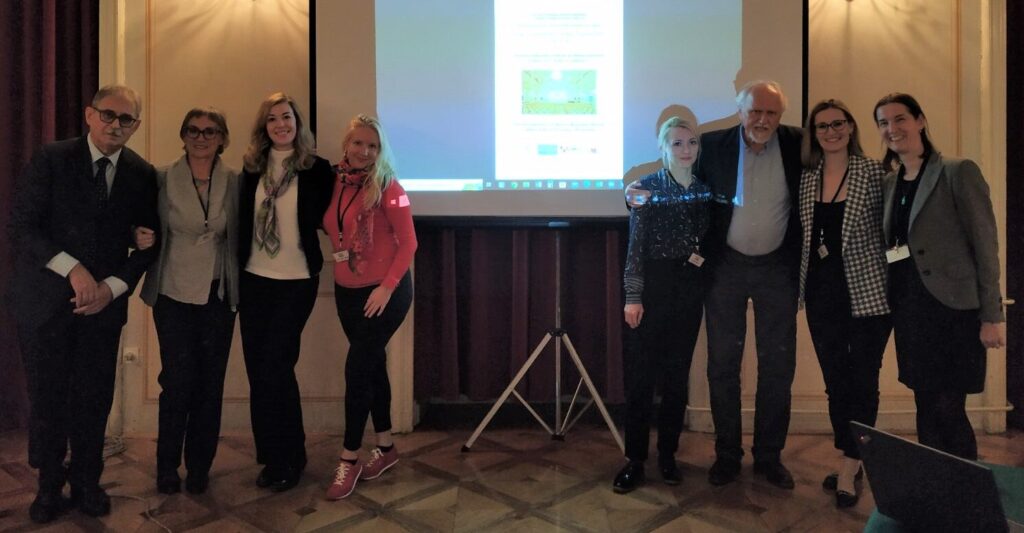
Abstracts
(in order of appearance in the Workshop Programme)
Stanislav Tuksar
Croatian Academy of Sciences and Arts, Zagreb
Institutionalization of Modern Bourgeois Music Culture in 19th-Century Civil Croatia – Introductory Considerations
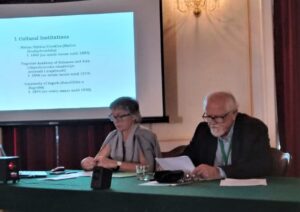
The process of institutionalization of modern bourgeois music culture in 19th-century Civil Croatia (the provinces of stricter Croatia and Slavonia) went hand in hand with broader contemporaneous developments in education and social modernization. In this, questions arise of when bourgeois society in Civil Croatia, as distinct from that of the ‘ancien régime’, came into being and of what “bourgeois music culture” means. The liberalization of social practices was one of the important elements of the ideological background which enabled the emergence and developments of these processes. In it participated not only the members of the otherwise thin social stratum of bourgeoisie, but also some members from the aristocratic and high ecclesiastical circles. Another important element was the rise of national consciousness and the proclaimed supreme interests of the nascent modern Croatian nation, in which participated people from various ethnic origins (Croatians, Serbs, Germans, Jews).
The paper follows free gatherings, societies and associations from the late 1820s on: Musikvereins, music schools, salons, singing societies, music theatres and instrumental ensembles. When discussing the issue of institutions in the areas and periods under consideration it should be pointed out that some among them emerged as new acquisitions, i.e. innovations of the new post-feudal era, while others had a prehistory of a kind, where new components or specific activities replaced or modified the already existing ones.
Željko Holjevac Institute for Social Sciences Pilar, Zagreb
Military Frontier and the Illyrian Occasional Songs
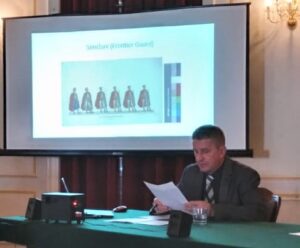
The Military Frontier was a defence area in Croatian and other Habsburg lands which bordered the Ottoman Empire from the sixteenth century to 1881. Military service was compulsory for every adult and able-bodied man between the ages of 16 (raised to 20 after 1850) and 60. The Illyrian movement established the common Croatian literary language and literature, and initiated the first public newspapers in the Croatian language. The movement also inspired the founding of libraries, reading rooms and national societies so that during the Romantic era, in the spirit of European ‘Zeitgeist’, musical and other cultural activities in north-western Croatia prevalently served the Revival Movement, which gave its attention also to the Military Frontier. “As a rock in the midst of the sea / he fearlessly stands at guard, / neither rain nor snow disturbs him, / neither winds which waver the woods / he is getting warm by the fire of his heart”. These were the verses by Franjo Turić from Gospić in July 1843 from his poem Graničari (The Frontier Men), published in the Illyrian newspaper Danica in November of the same year. There is no need to additionally point out its importance of the place and role of Illyrian occasional songs about the Military Frontier and other topics in the process of institutionalization of modern bourgeois musical and culture at large during the nineteenth century.
Tomáš Slavický
Czech Museum of Music, Prague
From the Patrimonial to the Civic Model of Music for All – The Transformation of Music Institutions in the Czech Kingdom and the Problems of Their Documentation
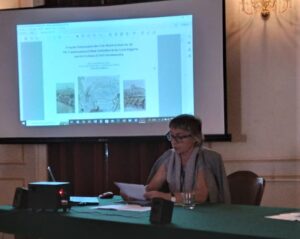
The topic of the establishment of modern music institutions is a challenge for a new perspective on the transformation processes in multinational Austria. The Kingdom of Bohemia (Czechia) is an example of a bilingual country where a modernization of music education was quite successfully implemented together with infrastructure to support military bands, and at the same time the development of the Czech national movement, including the building of civic associations and efforts to create a national theatre. These processes took place in principle in a peaceful way without revolutions. A long-lasting effort for a consensus between Czechs and Germans, aristocracy and bourgeoisie, Czech national representation and the Austrian state was typical. However, this consensus was later denied and the interpretation of the national movement as a struggle of revolution against reaction was firmly established in Czech musical historiography. The paper will try to describe the main problems of competing concepts of the Czech national revival and the later rewriting of history. The subject of interest will be the synergistic processes of establishing national and transnational musical institutions, their interaction models, and the effort for mutual communication between emerging national cultures in Austria.
Maruša Zupančič
Musicological Institute ZRC SAZU, Ljubljana
Institutionalization of Modern Bourgeois Musical Culture in 19th-Century Ljubljana
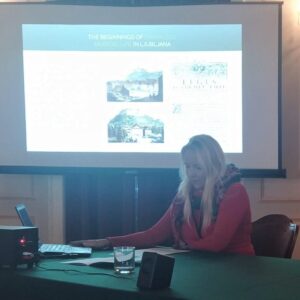
At the end of the seventeenth century, various humanistic associations were founded in Ljubljana. At the beginning of the eighteenth century, the aristocratic association Academia Philharmonicorum Labacensium (1701) began its work, but ceased its activity in the middle of the century. A revival of organized musical activity took place in Ljubljana in 1794 under the name Philharmonische Gesellschaft (Philharmonic Society), when four citizens formed a string quartet and, after a month of activity, invited other music lovers to join them. Soon merchants, teachers, priests and craftsmen signed up as members. The core of the society initially consisted of fifteen members and four quartet members. Although the Philharmonic Society was the first to institutionalize Ljubljana’s musical life, the social background of its members was diverse, yet it was not fully accessible to the general public in every aspect. Its academies, as the concerts were called until 1836, were initially intended only for a closed circle of its members and represented a kind of transitional form between private and public concerts. Nonetheless, the Philharmonic Society strove for social equality since its founding, and its 1794 charter allowed membership to anyone, regardless of status or class, whether musical dilettante or mere listener, who was willing to contribute to the society’s progress. Although in the first half of the nineteenth century provincial consciousness still prevailed and the number of nationally conscious people was extremely small, in the second half of the century the peaceful coexistence of Germans and Slovenes began to deteriorate more and more, and from 1861 the cultural tensions between them began to rise. During this shift in acceptance, Slovene patriots developed reading societies as a form of strengthening national consciousness and cultural and political position in the Monarchy. In 1872, the Glasbena Matica (Music Society) was founded in Ljubljana, which became not only a musical, but also a cultural and national centre for the Slovenes, and after the dissolution of the Monarchy, it took a central role in the field of music in the entire Slovenian territory at that time.
Lucija Konfic
Department for History of Croatian Music HAZU, Zagreb
Discussions on Music Institutions in the Karlovac Press of the 19th Century
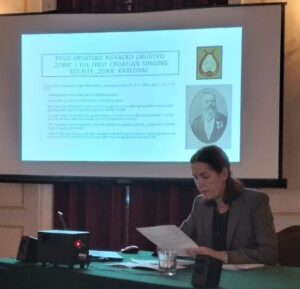
In the presentation, existing knowledge about the musical life of Karlovac will be complemented by a more detailed reading of newspaper articles about music in the “long” nineteenth century. The importance of the local press, which was very rich in Karlovac, especially comes to the fore for news about musical life and musical occasions. In the framework of this research, the following newspapers in the Croatian language were taken into account: Karlovački viestnik (1861), Glasonoša (1861-1865), Karlovački viestnik (1866), Svjetlo (1884-1905), Sloga (1886-1888) and Karlovački glasnik (1899-1903). The following questions were asked: What news about music came to the public and in what way was it presented? How important was music as a cultural and social factor in the city? Who initiated and encouraged discussions about the musical life of the city? Special attention was paid to discussions about the musical institutions of Karlovac, which can be divided into several thematic groups: 1) the Croatian singing society “Zora” and other musical societies; 2) he music school in Karlovac and music activities in other schools; 3) The issue of city music and the attitude towards military music.
Ivano Cavallini
University of Palermo, Palermo
What Kind of Music for a Multi-Cultural Bourgeoisie? Three Sketches of Trieste in the Whirlpool of Cosmopolitanism and Nationalism
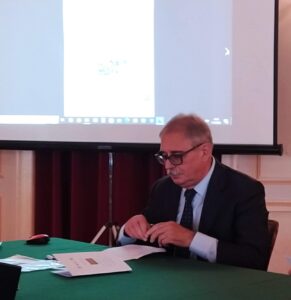
During the reign of Maria Theresia, and her son, Emperor Joseph II, Trieste was completely rebuilt and became an attractive free-tax port of the Habsburg Empire. From the end of the seventeenth century to the first decade of the twentieth century, the population increased from 5000 to 230,000 inhabitants with an incredible amount of human beings coming from Central Europe and the Mediterranean coastal areas. The multi-ethnic ‘middle class’ obtained a series of privileges never before granted to the nobility, and its status is recognisable through the passion for the chamber music and symphonies of Wiener Klassik, played both in private and public concerts.
With the help of Czech intellectuals and musicians, during the 1860s the native Slovenes established a group of societies in which Romantic music and national anthems or Lieder were played. This trend culminated in the foundation of the Narodni dom (National House) and the Glasbena Matica (School of Music). At the same time, the Italian nationalists held the control of the Opera house, and the German minority reacted with the Schiller Verein, in which Julius Heller spent his energies in spreading the music of Romantic and neoromantic composers. Despite the political clash, the three groups gave significant impulse to instrumental music, which has marked the story of Trieste.
Fatima Hadžić
Academy of Music, Sarajevo
Institutionalization of Music Culture in Bosnia and Herzegovina: Identification of Key Figures and Processes
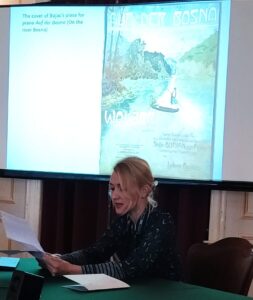
In the history of music in Bosnia and Herzegovina, the Austro-Hungarian period (1878-1918) is considered the period of the establishment of the Western European model of musical life. Furthermore, the period between the two world wars (1918-1941) is marked as the period of the institutionalization of musical life on the musical infrastructure created in the previous period. Since Bosnia and Herzegovina was under centuries-old Ottoman rule until joining the Austro-Hungarian Monarchy, the process of institutionalization began much later than is the case with Bosnia’s neighbouring countries. With the very rapid transition from the Oriental-Islamic to the Western European cultural circle, the complex relationship of the ethno-national communities in Bosnia and Herzegovina towards the new administration, and the role of foreigners (primarily the Austro-Hungarian administration), this process of institutionalization of musical life is specific and particularly complex. The goal of the presentation is to identify the key figures in this process, i.e. to describe the models of private and public initiatives in the field of musical culture that “prepared the ground” for the establishment of musical institutions, bases of modern civic musical culture in Bosnia and Herzegovina.
Petra Babić
Project MusInst19 HAZU, Zagreb
Musical Life in the Military Frontier: The Case-study of the Militär-kommunität Petrinja
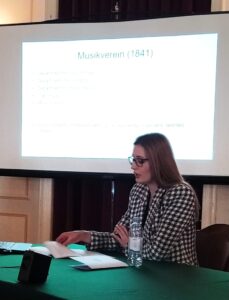
Militär-kommunitäten were towns in the territory of the Military Frontier that were granted special privileges. Sometimes defined as civil areas surrounded by completely militarized environment, in militär-kommunitäten trades, crafts and cultural life were more developed than in the other parts of the Military frontier. In the nineteenth century eight towns held this status: Petrinja, Kostajnica, Senj, Karlobag, Bjelovar, Zemun, Petrovaradin and Karlowitz.
For this research, Petrinja was selected as a case study primarily due to the fact that it had Musikverein, a singing society and three different orchestras. In this paper, the main aspects of both the civilian and military music life of Petrinja will be presented. Also discussed will be the foundation of the Musikverein and the importance it held for the town’s cultural life, and how the military Regimental orchestra and semi-military Town guard’s band both contributed to the diversity of Petrinja’s musical life.
Lili Veronika Békéssy
Institute of Musicology, Hungarian Academy of Sciences, Budapest
Military Bands, Reunions. Popular Concerts in Pest-Buda during the 1850s
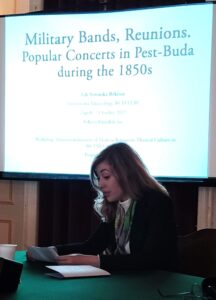
Military bands played an essential role in the system of the Habsburg Empire’s musical institutions. The large number of the military bands also deserves attention: during the 1850s more than 150 military bands operated between the borders of the Habsburg Empire. The leaders of the military bands were mostly educated musicians. Therefore the quality of the played repertoire and the performance itself was high in the context of the contemporary circumstances. One can have a closer look at the repertoire played and venues of music through the contemporary press and archival research.
The daily newspaper Pesth-Ofner Lokalblatt und Landbote offers a high number of detailed advertisements of musical events which were unknown. The aforementioned newspaper and the city council minutes provides a clearer picture of Pest-Buda’s musical life. These sources, examined together with a day-by-day investigation of the local newspaper material enables us to see in detail what the real function of military orchestras in Pest-Buda’s institutional musical life was.
In my paper I will provide an insight into the daily operation, especially the popular concerts of the military bands in Pest-Buda.
Vjera Katalinić
Department for History of Croatian Music HAZU, Zagreb
How to Establish a Public (Music) Library: The Case of Nikola Udina/Algarotti and His Music Collection
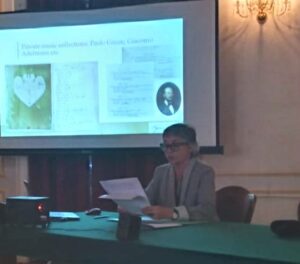
The thesis of the paper is that Nikola Udina/Algarotti (Krk, 1791 – Vienna, 1838) started to collect his music material (and books, as well as musical instruments, but the focus will be put on sheet music) with the intention to create a public library. The arguments can be found in various documents that will be presented here as well as some presumptions and speculations that gave him the impulse for such a large and demanding action. Further, some characteristics of the music collection itself can reveal both the intention and the way of realizing his project that resulted with the huge donation/bequest of almost 3500 music items (along with a few thousand books) to his native city of Krk that enabled the foundation of Biblioteca Algarotti, opened in a specially adapted building. That was an immense benefit for a small town with less than 1000 inhabitants, but with urban infrastructure within rural places in its vicinity. However, only two generations of locals used it during the second half of the nineteenth century, because the lack of finances caused its closure in 1894.
